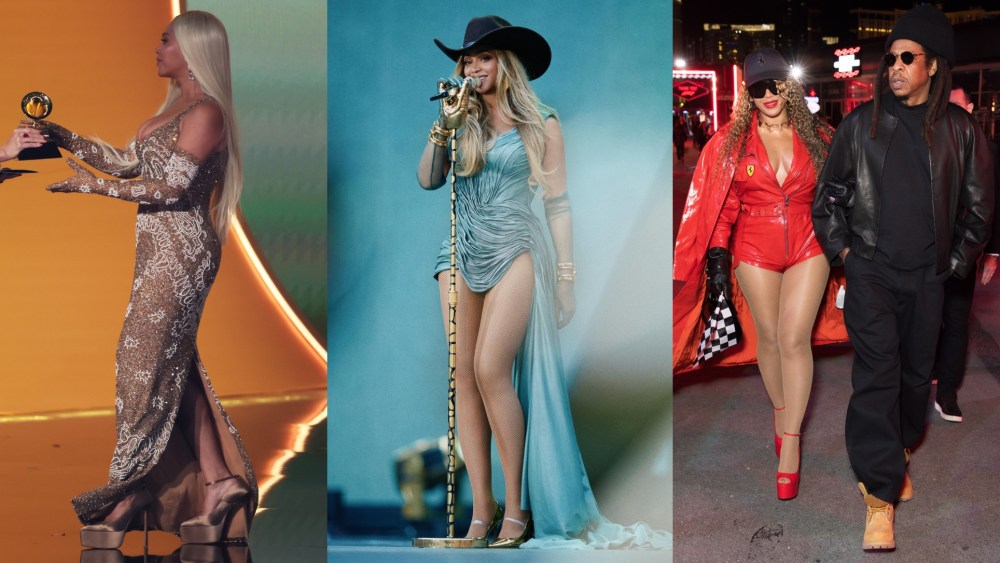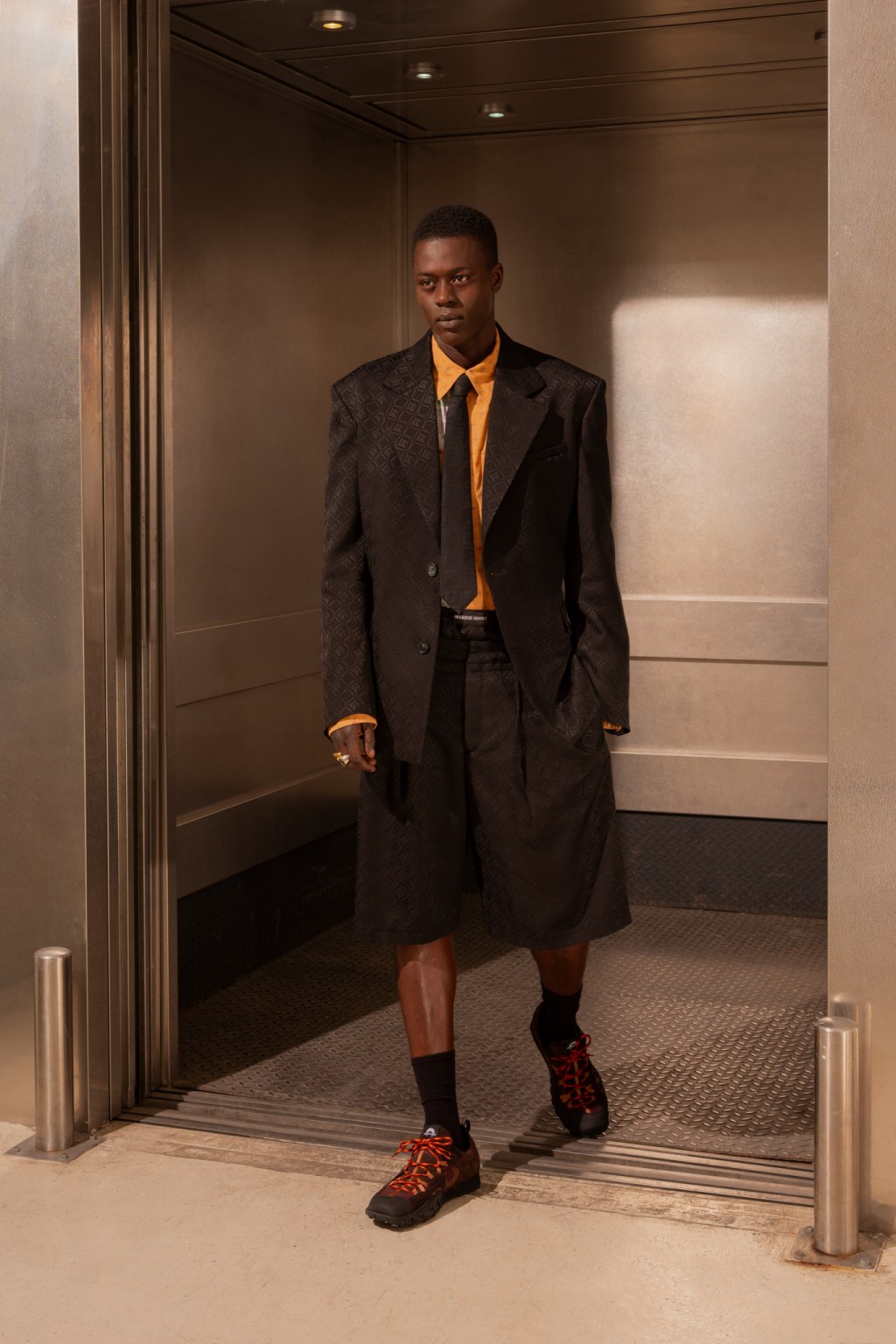Beauty has blossomed on TikTok Shop, but a tug of war between the world’s two biggest superpowers means its future is uncertain.
If mounting pressure to sell to a non-Chinese owner hasn’t cast enough uncertainty on TikTok’s future, the app’s fate has now also become inextricably enmeshed in a trade war between the U.S. and China.
In the most recent development, U.S. President Donald Trump placed tariffs of up to 245 percent on some Chinese goods, the highest rate placed on any of the 60 total countries hit with tariff hikes as part of the president’s reported plan to boost the American economy.
Related Articles
China, the only country exempt from a 90-day pause on tariffs above 10 percent which took effect April 5, has responded with retaliatory tariffs of 125 percent on U.S. imports.
Pains of this tariff war are already being felt across industries, including beauty, many of which rely heavily on Chinese manufacturing for parts and packaging. On top of this, the escalation further complicates the future of TikTok — and subsequently, its burgeoning e-commerce arm TikTok Shop — as the ByteDance-owned platform faces pressure to either sell its U.S. operation to a new owner or face a ban in the region over security concerns.
Previous deadlines of Jan. 18 and April 5 to either sell or be banned have both been extended by Trump, who is intent on brokering a deal and most recently set another extension to June 19. Several prominent players have expressed interest in purchasing the platform, among them Microsoft; software company Oracle; Amazon; a start-up led by OnlyFans founder Tim Stokely called Zoop, and more.
“Buying TikTok and having that kind of audience and reach made readily available — it’s a once-in-a-lifetime opportunity for a lot of investors,” said Sky Canaves, principal analyst at Emarketer, adding that “a sale can’t be made without Beijing giving the green light — and right now, TikTok is essentially a pawn in this trade war between the U.S. and China.
“I don’t know when or how we’ll see a sale without this trade war entering a much more conciliatory phase and, right now, we’re still in the escalation stage.”

Business as Usual?
Since soaring to mainstream popularity during the pandemic, TikTok has become a key platform for beauty in terms of generating trends and propelling brands and products to viral status. Add to that the runaway success of beauty selling via TikTok Shop following the commerce arm’s 2023 rollout, “the future of TikTok’s U.S. operations will have significant implications for beauty overall,” said Jacqueline Flam Stokes, senior vice president of beauty, drug and OTC retail at NielsenIQ.

Data from NielsenIQ shows beauty sales on TikTok Shop have grown 53 percent year-over-year, far outpacing total beauty e-commerce’s 10 percent growth during the period. During the first quarter of 2025, beauty sales on the platform reached $473.9 million — an 87 percent increase from the $253.1 million generated during the same period last year, per Charm.io.
Nevertheless, it’s business as usual even against this chaotic backdrop.
“Despite a pretty uncertain future, we’re seeing that it’s very much business as usual on TikTok Shop — things aren’t slowing down,” said Flam Stokes, adding that the platform “has changed the way beauty consumers shop — and that behavior, that way of shopping, will be what sticks.”
For most of TikTok Shop’s trajectory, purchases made via the platform were primarily those costing under $25, or those often qualified as “impulse purchases,” as Flam Stokes put it. But that’s changing. “We’re seeing the price points and basket sizes increase into the over-$30 range during the last few months as consumers become more comfortable spending more money on TikTok Shop, making purchases that require a little more thought and consideration.”
Case in point: Medicube was the second-biggest beauty brand on TikTok Shop during the first quarter, according to Charm.io, and its top seller? A $93 “glass glow” skin care set featuring eight of the K-beauty favorite’s complexion-boosting offerings. Other top-10 brands Lattafa Perfumes and Anua similarly count $45 and $79 bundles as their top-performers, respectively.

TikTok Under New Ownership
As far as how the TikTok experience could be altered for the platform’s roughly 170 million U.S. users if it does indeed change hands, most experts are hoping it won’t — at least, not in terms of its core functions.
“I would caution any new owners from radically changing anything,” said Leslie Ann Hall, cofounder and chief executive officer of social media agency Iced Media, which has onboarded brands like Dieux and Moroccanoil to TikTok Shop. “The magic of TikTok — what makes it so peerless and unique — is the algorithm. It’s that understanding of what people are interested in and how to give them more of it, as well as that seamless integration of shopping and entertainment.”
Added Alex Nisenzon, CEO of Charm.io: “Any acquirer should want to preserve the authenticity that TikTok has built — the last thing you would want is everyone leaving the asset you just paid a ton of money to get.”
With that being said, certain potential acquirers seem poised to make valuable enhancements to the way the platform already operates.
Microsoft, for instance, has previously taken a strategic “hands-off” approach with past acquisitions such as LinkedIn and, more recently, video game giant Activision Blizzard. The company also owns Bing and holds a 49 percent ownership stake in OpenAI, the maker of ChatGPT — which is significant for a few reasons.
“We already know consumers are increasingly turning to ChatGPT for skin care product recommendations, and that trend is only going to continue growing,” Hall said. “If you look at Microsoft as a potential acquirer, and the ability for all of that rich TikTok data to be input into those ChatGPT recommendations — that’s gold. That’s where the future of search and product recommendations, especially in beauty, are going.”
In addition to this, “the youths are searching on TikTok,” pointed out Dieux cofounder Charlotte Palermino, who counts more than 445,000 followers via her personal TikTok page (@charlotteparler), and reports that most views of her ultra-viral trend and ingredient explainer videos come from TikTok search — not the For You page.
Indeed, a 2024 survey by Adobe found that more than 2 in 5 Americans use TikTok as a search engine and nearly 1 in 10 Gen Zers are more likely to rely on TikTok than Google as a search engine. Even more recently, data from Statcounter shows that Google’s search market share dropped below 90 percent for the first time since 2015 for the last three months of 2024, with ChatGPT and Bing being among the key share gainers.

Meanwhile an acquisition by Amazon, which declined to confirm whether it placed a bid for TikTok just before the April ban deadline, “seems like the least likely outcome from a regulatory perspective, but would be the most transformational if it happened,” said Kevin Gould, who cofounded sister press-on nail brands Glamnetic and Digi Beauty, and is the founder and CEO of Kombo Ventures.
Added Front Row Group CEO Yuri Boykiv: “If Amazon was to acquire TikTok, it could create a very lucrative opportunity for many brands just from a conversion standpoint, if you think about the amount of data Amazon has about consumers, brands and merchants, combined with TikTok’s power as a demand-generating platform.”
At the same time, though, many brands that have embraced TikTok Shop are still hesitant about Amazon. For instance, LVMH Moët Hennessy Louis Vuitton does not sell any of its brands on Amazon, but LVMH-owned Benefit Cosmetics has been both an early adopter and a high-performer on TikTok Shop even in regions outside of the U.S. “These brands see TikTok Shop as a completely different channel — one where they can control the voice, how the brand is represented, what creators they partner with,” Nisenzon said.
“The Wild, Wild West”
He added that one benefit of an acquisition by most contenders, including Amazon, “is that it could kind of eliminate the wild, wild West aspect of TikTok Shop.”
“TikTok is in those kind of early-infancy days, similar to when Amazon was first getting going, where you don’t really need to share any details to list a product — you can put up a photo, a product name and that’s it; there are a lot of misrepresented products and counterfeit products — any serious U.S. acquirer would likely clean much of that up.”
According to Canaves, “the favorites for an acquisition are TikTok’s existing minority investors — General Atlantic and Susquehanna, those private-equity types — who would take more of a backseat role and not try to steer the company into very uncharted territories — they basically want to keep what’s working, working.”
But still, the backdrop of the U.S.-China trade war makes it unclear when and if a deal could even transact.
“I think we’ll continue to see the ban deadline get extended, unless China makes a move to force ByteDance to pull out of the U.S.,” Canaves said. “Which would be extreme — but given everything else that’s happening, it’s not out of the realm of possibility.”


